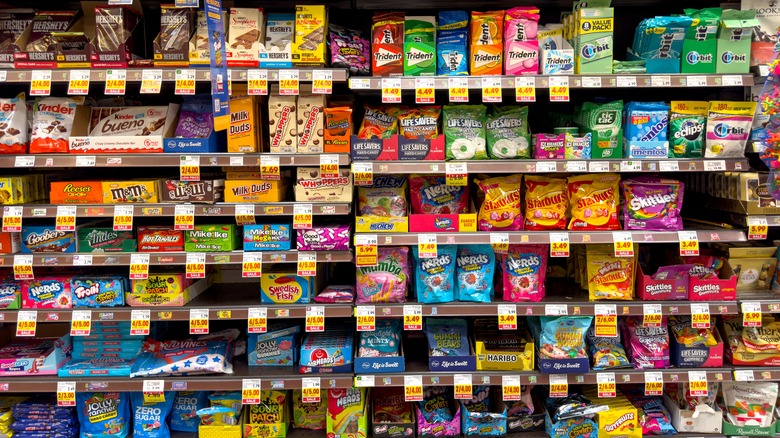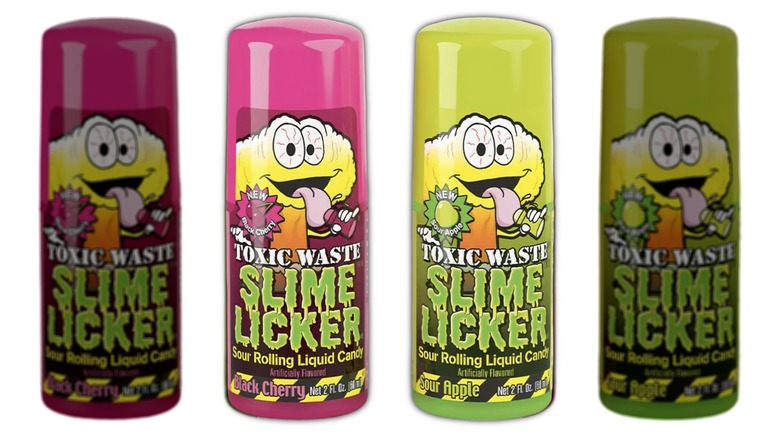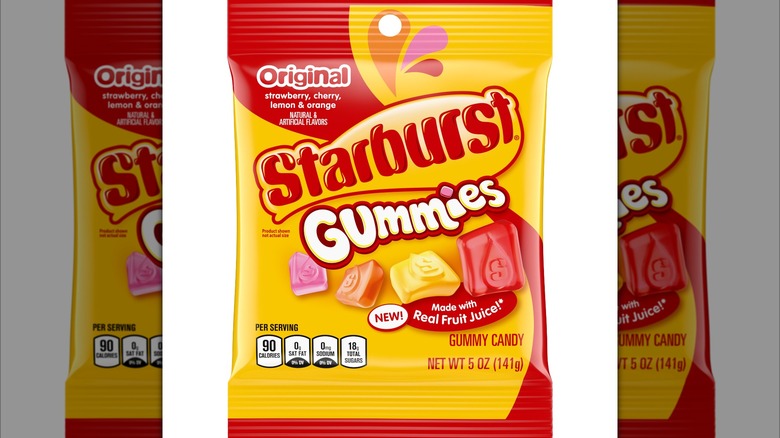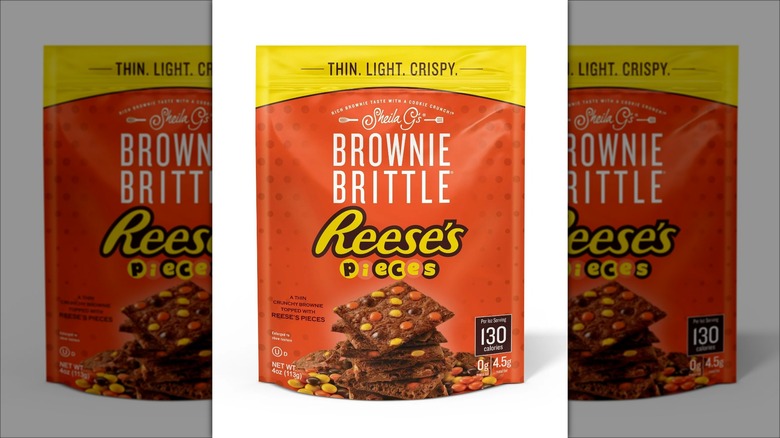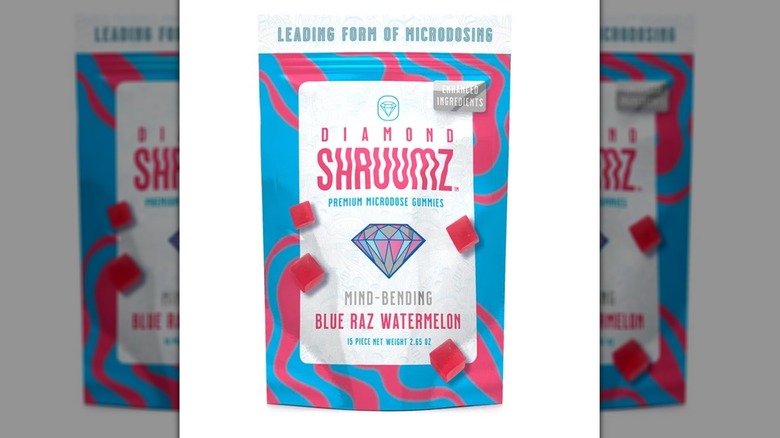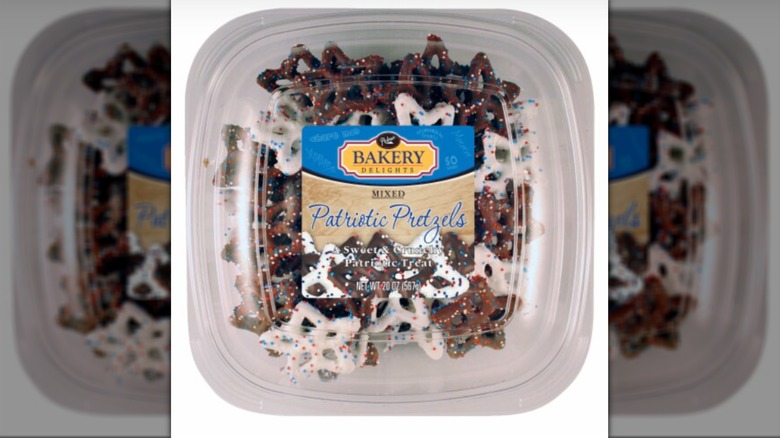8 Of The Biggest Candy And Treat Recalls In US History
The vast majority of food recalls issued by manufacturers and grocery stores such as Walmart are focused on so-called high risk food items. These are foods that are most likely to carry the pathogens and bacteria that cause foodborne illnesses and include meat and other animal products, raw fruit and vegetables, and unpasteurized juices. Candy is much less likely to cause food safety issues thanks to most being dry, highly processed, and full of preservatives. However, every food, including candy, poses some risk to consumers be it through microbiological risks, manufacturing errors, or incorrect labeling practices as the recalls included in this article prove.
One thing to consider is that many candies are marketed to children. This means that these products must be designed to be safe for consumers of all ages by removing choking hazards, for example. Unfortunately, these steps are not always taken or executed properly, leaving children, and indeed other consumers, incredibly vulnerable to injury, illness, and sometimes even death.
1. Rolling candies recalled after fatality
In October 2023, a massive recall was issued for two brands of rolling candies, Slime Licker Sour Rolling Liquid Candy and Cocco Candy Rolling Candy. Over 70 million units of these products were recalled after it was discovered that the ball applicator, which consumers lick the liquid candy off of, could become dislodged and pose a potential choking hazard. Unfortunately, this recall only came six months after a ball dislodged from a Cocco Candy Rolling Candy, subsequently choking and killing a seven-year-old child. Around 145,800 units of the Cocco Candy products were subsequently pulled from grocery store shelves.
Candy Dynamics, the company behind Slime Licker Sour Rolling Liquid Candy, issued its own recall for a massive 70 million units after it received two reports of the ball dislodging from its Slime Licker products around the same time. Fortunately, nobody was injured by this potentially dangerous candy.
Despite these recalls, rolling candies continue to pose a risk to young consumers. In March 2024, Twenty Four Six Foods Recalled approximately 290,000 units of its Happiness USA Roller Ball Candy after the ball detached and choked a seven-year-old. The child survived, but only after undergoing emergency surgery.
2. Several products recalled due to metal contaminant
In 2023, Mars Wrigley was reported by Statista as the largest confectionery company in the world when it comes to net sales. With over $22 billion of products sold worldwide, it is perhaps unavoidable that some products will eventually require a recall. This is exactly what happened in May 2022 when 13 products, including Starburst Gummies Original, one of the most popular Halloween candies in America, and Skittles Wild Berry Gummies, were recalled due to the presence of metal contaminants in the product.
In an announcement published by the Food and Drug Administration, it was revealed that thin strands of metal had been found both embedded in the candy and loose in the product's bag. The nature of the contaminant suggests that there was a manufacturing error at some point on the production line. Despite 13 products being recalled due to this fault — many of them being incredibly popular candies — no illnesses or injuries were reported in conjunction with the recall. And, after the issue was reported by a few concerned consumers, all the faulty products were successfully recalled.
3. Chocolate coins recalled after illness reported
Paskesz Candy Company, which is based in New York, issued a recall for its Premium Belgian Chocolate Coins in January 2014. This product, which was sold in 1/2-ounce mesh bags, was recalled after it was discovered that milk, an allergen which the product contained, was not listed on the label. After testing, it was reported that milk was present in chocolate coins at the level of 41 parts per million.
The mislabeled coins were on sale between October 2012 until the end of 2013. While the chocolate coins, which are a significant candy for those celebrating Hanukkah, were on sale for a prolonged period of time, only one child was reported as falling ill after consuming the chocolate coins. Paskesz Candy Company's Belgian Chocolate Coins were distributed to, and had to be recalled from, stores nationwide. This makes the fact that only one consumer fell ill all the more surprising.
4. Peanut butter candies recalled due of salmonella outbreak
In the summer of 2022, J.M. Smucker Company recalled Jif peanut butter produced at its Lexington, Kentucky plant after it was identified as the source of a salmonella outbreak. In this location, water contaminated with salmonella was found on the peanut roasting production line in various locations. It is thought the presence of this water was what led to the peanut butter being contaminated. According to the Food and Drug Administration, this outbreak led to 21 people falling ill. Four individuals were hospitalized.
While the peanut butter itself posed a risk, this recall was complicated because the contaminated peanut butter was used as an ingredient in a great number of confectionery and candy products. Brands including Euphoria Chocolate Company and Coblentz Chocolate Company issued their own recalls for products such as Dark Chocolate Peanut Butter Meltaways and Oversized Milk Chocolate Peanut Butter Cup in an attempt to ensure that the contaminated peanut butter did not sicken more people. Even grocery store bakeries, including Giant Eagle's, had to pull items from shelves in one of the brands biggest recalls after the peanut butter was discovered to be contaminated.
5. 4 million pounds of products recalled due to salmonella concerns
In June 2024, Clasen Quality Chocolate recalled 10 products over concerns they'd been contaminated with salmonella bacteria. These products included Caramel Flavored Confectionery Drops, Milk Chocolate Wafers, and Snow White Chocolate. All told, this recall encompassed over 4.75 million pounds of product. The volume of each recalled product varied enormously from 4.5 million pounds of Milk Chocolate Flavored IC Coating to a single pound of Caramel Flavored Confectionery Drops, a product which was in the research and development stage.
Despite posing a serious risk to consumers, the Food and Drug Administration only gave this recall class two status, one beneath the most serious. This classification was somewhat justified after it was revealed that, despite these products being distributed across nine states, they were not linked with any illnesses. This marks another lucky escape for a candy company that unknowingly created and distributed potentially harmful products.
6. Reese's Pieces Brownie Brittle recalled due to undeclared wheat
Several lots of Gluten Free Reese's Pieces Brownie Brittle were recalled by manufacturer Second Nature Brands in March 2023 when it was discovered that they contained undeclared wheat. This, of course, meant that the brownie brittle was not actually gluten free. According to a statement shared by the Food and Drug Administration, cross-contamination was to blame. It is not known exactly how or where this contamination occurred, only that it affected multiple lots of the Gluten Free Reese's Pieces Brownie Brittle.
Despite around 6% of the United States' population having an intolerance to gluten, only one person was reported as falling ill after consuming the faulty product. Still, a single illness is one too many, and Second Nature Brands were very quick to pull the item from retailers shelves while offering those customers who'd bought the product a full refund.
7. Serious illnesses associated with Diamond-Shruumz candies
Not all candy is produced with children in mind. Diamond-Shruumz, which was founded in 2022, specializes in candies, including gummies, cones, and chocolate bars, that contain non-psychedelic mushrooms and are designed to give customers a mild high. Unfortunately, at the time of writing, all Diamond-Shruumz's products are currently involved in a mass recall after 145 people fell ill after consuming the company's candy. Of these people, 59 were hospitalized. Two deaths are also being associated with Diamond-Shruumz products.
Those that fell ill after consuming the candy demonstrated a number of symptoms, including seizures, abnormal heart rates, and loss of consciousness. Some individuals even had to be put on ventilators in order to keep them breathing. As a result, the Centers for Disease Control and Prevention are advising consumers to avoid all Diamond-Shruumz products as they work to determine the cause of these illnesses.
Although the particulars aren't currently known, the Food and Drug Administration reported that some Diamond-Shruumz products contain toxic levels of muscimol, a psychoactive chemical. However, not all of the products contain this compound suggesting something else is to blame, potentially an ingredient, toxin, or chemical introduced to the products via contamination. Speaking to The New York Times, medical director of Rocky Mountain Poison Center Dr. Chris Hoyte said, "There's not great quality control around some of these products to know exactly what's in them."
8. 31 products recalled over candy coating salmonella concerns
Palmer Candy Company recalled 29 confectionary and candy products in early May 2024 over concerns that the white candy liquid used to coat the products was contaminated with salmonella bacteria. The affected products were distributed by major retailers, such as Walmart and Target, in 17 states.
To make matters even worse, the Food and Drug Administration issued an update two weeks later, expanding the recall to include two further products, Patriotic White Fudge Cookies and Drizzled Caramel Corn, taking the total number of recalled products up to 31. Despite the huge number of products included in this recall, and the vast area of the United States that they were distributed in, no illnesses were reported. This should be considered a lucky escape for Palmer Candy Company as salmonella bacteria on food often lead to people developing salmonellosis, an illness that causes diarrhea, vomiting, and cramps. As children under five years old are particularly vulnerable to the illness, Palmer Candy Company's products were fortunate not to cause any child to fall ill.
